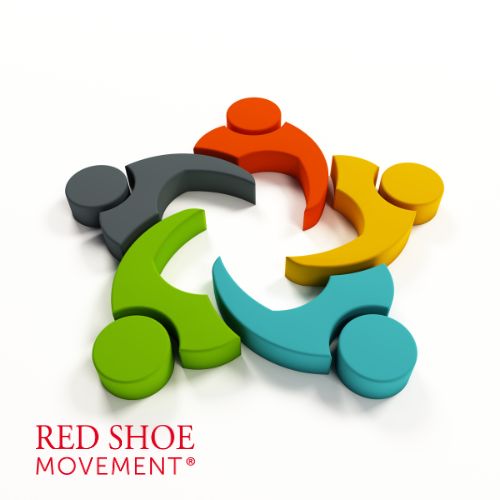When I first started working with large organizations, I often found myself puzzled by the difference between status and power. Both seemed interlinked, yet distinct in ways that were not immediately apparent.
Over time, I came to realize that given that one can work on one’s status, it behooved us to learn how to build it in order to gain more power and thus further advance in our career. Today, I’ll share insights from Alison Fragale’s book “Likeable Badass” as well as other research on status and power, and share practical advice on how to effectively build your status in the workplace.

The Difference Between Status and Power
Let’s start by clarifying these concepts:
Status refers to the respect, admiration, and esteem that one commands from others. It is often influenced by factors such as expertise, likability, and trustworthiness. Status can be seen as the social currency that determines one’s standing within a group or organization.
Power is the control of resources others want. It is often associated with formal authority, such as a managerial or executive position, but can also stem from informal sources like expertise or access to critical resources.
While power can be granted through a job title or position, status must be earned through interpersonal relationships and demonstrated competence. One can have power without status, but the most effective leaders often possess both.
Why Build Your Status
No matter what your current role is, you may have limited control over how much power you have. Yet, because your status is malleable, there are things you can do to increase it and therefore open-up the doors for more power. For example, say you are a research assistant. Your role may have little power, but if you have the right relationships, if people across the organization trust you with their confidences and their special projects, you may have very high status. This status provides you with opportunities for heighten visibility which in turn can easily lead to more power.
Building Your Status in the Workplace
If you want to build your status at work and eventually translate it into power, here are some strategies you can practice:
1. Demonstrate Competence
One of the most straightforward ways to build status is to demonstrate your expertise and competence. This means consistently delivering high-quality work, staying current with industry trends, and continuously honing your skills.
On a personal note: I remember a time when I was very young and starting my career. I was asked to lead a large project despite the fact that I wasn’t even out of college, and I had little experience. By learning about the project inside and out and seeking advice from more experienced colleagues, I was able to deliver exceptional results. This not only earned me the respect of my peers and my boss, but also positioned me as a go-to person for future challenging projects.
2. Build Strong Relationships
Status is often built through strong interpersonal relationships. Take the time to get to know your colleagues, show genuine interest in their work, and be supportive. This means, be as helpful to them as you can in ways that can be small or really big. By making what Alison Fragale calls “small deposits” you can build a large network of people who has benefited from your help and who hold you in high esteem.
On a personal note: From the very beginning of my career, I made it a point to have regular coffee chats with colleagues with different functions. These informal meetings helped me build a diverse network and gain insights into various aspects of the organizations I was working with. I knew about their needs, their challenges, their triumphs, and I constantly looked for ways to help them. Over time, this network became an invaluable source of support and opportunities as people saw me as a trustworthy colleague and someone who could get things done.

3. Be a Reliable Source of Information
Being a reliable source of information can greatly enhance your status. This means staying informed about what is happening within your organization and industry, and sharing relevant insights with your colleagues. It’s a well-known fact that “knowledge is power,” so if people come to you for information, it helps reinforce your status and eventually it solidifies your power.
On a personal note: I’ve always subscribed to industry newsletters, attended professional conferences and spend significant time reading through colleagues’ updates on LinkedIn to stay updated on the latest trends. By sharing these insights with colleagues and clients I positioned myself as a knowledgeable and resourceful collaborator.
4. Develop a Strong Personal Brand
Your personal brand is how others perceive you. It encompasses your values, strengths, and the unique qualities you bring to the table. Take the time to define your personal brand and consistently showcase it through your actions and communication. It means to learn to speak about yourself in a way that highlights your contributions. Your personal brand is your reputation. It precedes you and it follows you everywhere you go.
On a personal note: When I first started my career as a writer, speaker and consultant, I branded myself as a knowledgeable, trustworthy and relatable professional who was always ahead of the curve in terms of what the market needed. By behaving in a consistent manner, always under promising and overdelivering, my name became synonymous of a leader who had the ability to inspire while offering actionable advice.
5. Act with Integrity
Integrity is a cornerstone of status. Acting with honesty, transparency, and ethical behavior will earn you the trust and respect of your colleagues.
On a personal note: There was a time when I had to make a difficult decision that could have compromised my integrity. My organization was offered sponsorship by a company in an industry that was responsible for serious health issues. Despite the financial loss that it implied I decided to turn them down. By choosing the ethical path, even though it was painful, I gained the trust and respect of our community and other potential clients.
6. Engage Others to Talk About You
Alison Fragale’s idea of “other promoters” is a wonderful strategy for amplifying your brand beyond what you can do yourself. So, make sure to engage the help of others in your network to talk about you and what you’ve done for them when you’re not in the room.
On a personal note: This is how word of mouth works at its best. Most of my clients in the last few years have come from people who have worked with me in their previous jobs or who were referred to me by others who know me. So, making sure I have everyone’s best interest at heart at all times, helps me add a lot of people to my network of “other promoters.”

Translating Status into Power
Clearly, once you have built your status, the next step is to translate it into power. Here are some strategies to help you achieve that:
1. Leverage Your Network
Use your network of allies and mentors you have built to gain support for your ideas and initiatives. Building coalitions can help you influence decision-making processes and gain more authority. This means not only networking but creating strong alliances.
2. Seek Formal Leadership Roles
Look for opportunities to take on formal leadership roles within your organization. This could mean applying for a managerial position or seeking a role on a high-visibility project.
3. Advocate for Yourself
Don’t be afraid to advocate for yourself and your contributions. Highlight your achievements and the value you bring to the organization during performance reviews and meetings with superiors.
4. Ask Others to Advocate for You
Tap into your network and ask the appropriate people to advocate for you. Make sure to give them the right language to use when you are not in the room.
5. Continue to Build Competence
Never stop learning and improving. Continuously building your competence will help you maintain and grow your status, which in turn will enhance your power.
6. Mentor Others
Mentoring others can expand your influence and demonstrate your leadership capabilities. When people see your effective mentoring skills, they clearly see your leadership potential.
On a personal note: Throughout my career I’ve mentored many, many people, which not only helped them grow but also solidified my role as a leader. These mentees constantly support my initiatives and are an integral part of my life and everything I do.
Building status and translating it into power is a journey that requires consistent effort and strategic thinking. By demonstrating competence, building strong relationships, acting with integrity, and embracing leadership opportunities, you can enhance your status within your organization.
Remember, status is about earning respect, while power is about using that respect to influence and lead and administer the resources you have — whether that’s money, a seat on the decision-making table, or anything else. By focusing on building your status, you’ll find yourself naturally gaining more power and advancing in your career.
























































































































































































